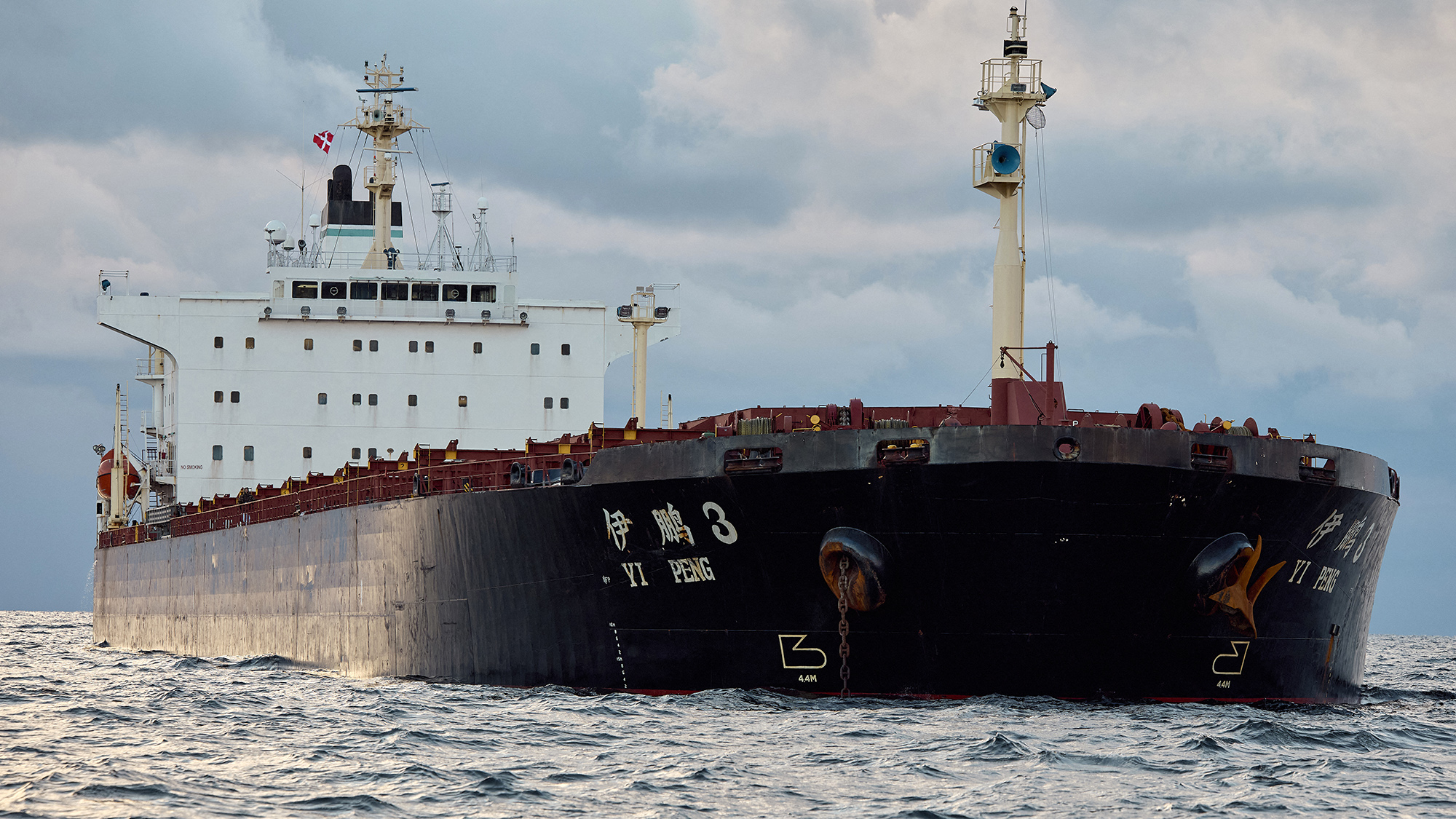
A massive Chinese cargo ship suspected of intentionally severing a pair of fiber optic cables in the Baltic Sea has left the area amid an ongoing international investigation. Cables like these, which are the veins connecting the global internet, have been at the center of suspicious maritime activity in recent years that has resulted in an uptick of outages. In this case, the ship had remained motionless in the Kattegat strait between Sweden and Denmark for months as investigators from multiple countries boarded it to search for clues. That changed on Saturday as satellite photos showed the vessel heading north and exiting the straight. Swedish authorities, who were spearheading the investigation, told The Guardian this week that Chinese officials denied their recent request to let prosecutors board the ship despite previously agreeing to fully cooperate. Chinese officials, meanwhile, now say the ship left to “ensure the physical and mental wellbeing of the crew.”
Investigators claim ship dragged anchors for more than 100 miles
On November 17, a major internet link connecting Finland and Germany suddenly went offline. Another nearby connection linking Sweden to Lithuania reportedly went down just one day later. Swedish investigators quickly attributed the outages to a pair of severed subsea fiber optic cables. There are hundreds of these cables lining sea beds around the world. Collectively, they are what underpins the global internet and are responsible for facilitating an estimated $10 trillion in daily global financial transactions.
It’s not uncommon for these cables, some of which are nearly four decades old, to sustain damages. This can happen as the result of neutral wear and tear, natural disasters, accident anchor drops from ships, or even shark bites. But, almost immediately, investigators suspected this particular case wasn’t an accident. Officials from Sweden and Denmark set their sights on a massive Chinese bulk ship transporting Russian fertilizer called the Yi Peng 3. The 225 meter long vessel, operated by a company called Ningbo Yipeng Shipping, reportedly left the Russian port of Ust-Luga on November 15. It then travelled nearly the full length of the Baltic Sea at the exact time the two cables were severed. The ship was ordered to stop to allow a team of investigators from Sweden, Denmark, Finland, and Germany to board it.
An initial investigation by Swedish officials, first reported on by The Wall Street Journal, claims the ship’s transponder allegedly shut off around the same time as the internet outages. The ship then allegedly dragged its anchor for 100 miles across the seabed. During that time, the ship kept traveling even as the anchor slowed down its speed considerably, a point they say makes an “accidental” anchor drop unlikely.
“Nobody believes that these cables were severed by accident,” Germany Minister of Defense Boris Pistorius, said last month, according to The New York Times.
Instead, investigators suspect the ship’s captain may have allegedly taken directrice from Russian intelligence officers. A Kremlin press office spokesperson refuted that theory last month calling the accusations“absurd, [and] unsubstantiated.” The ship shocked investigators when it left the strait this weekend after cooperating for weeks.
Mysterious cable damage is on the rise
The cable severing comes on amid a reported uptick in suspicious activity near subsea cables in recent years. Last spring, Taiwan officials accused China of intentionally directing ships to sever two submarine cables connecting the Mastu Islands to the rest of the world. China has denied those allegations. Not long after that, Estonian prosecutors claim a Hong-Kong registered container called the “NewNew Polar Bear” damaged a pair of subsea cables connecting them to Finland. An investigation uncovered an anchor found on the sea bed, which officials say belonged to the Chinese ship.
Whether intentional or not, the damages have sparked renewed interest from countries around the world to bolster cable security. Sixteen countries, including the US, Australia, Canada, Finland, France, and Japan, signed onto a joint United Nations statement earlier this year calling for a “shared global approach” to improving subsea cable reliability, interoperability, and repairability. Denmark added its name to that statement just days after the most recent severed cables.
Those efforts could help prevent future damage, but the Yi Peng 3’s abrupt departure from the Baltic Sea means we may never know, for sure, whether or not this most recent cable fiasco was intentional or not.

Win the Holidays with PopSci’s Gift Guides
Shopping for, well, anyone? The PopSci team’s holiday gift recommendations mean you’ll never need to buy another last-minute gift card.


